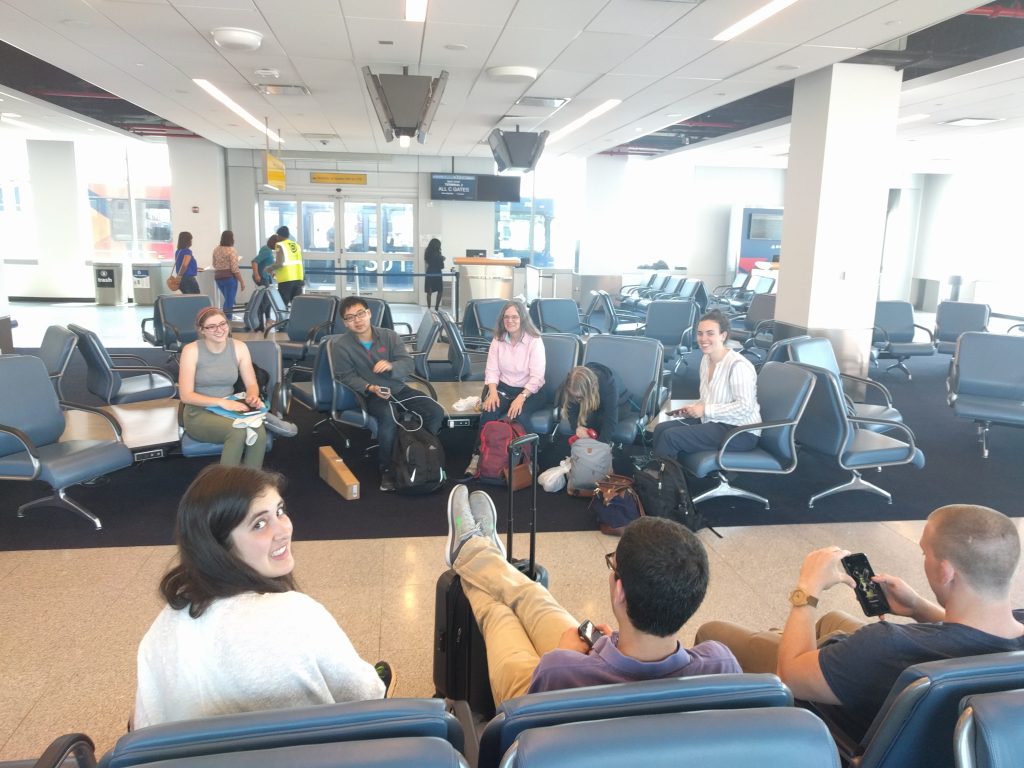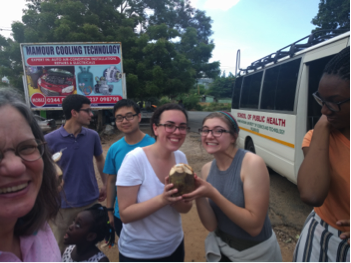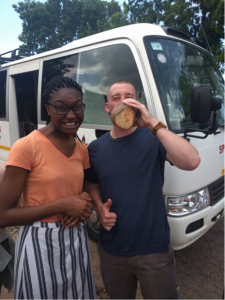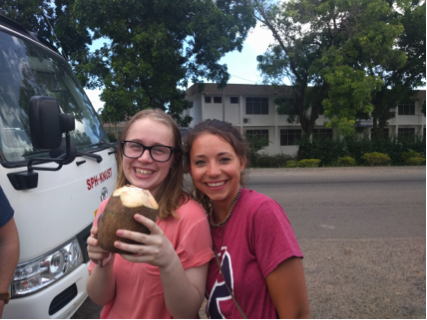by Danielle Tsougarakis, Bioengineering ’20; Jason Grosz, Bioengineering ’19; Ethan Zhao, Bioengineering ’19; and Kate Panzer, Bioengineering ’18

David Issadore, a faculty member in the Department of Bioengineering at the University of Pennsylvania teaches an engineering course ENGR566 – Appropriate Point of Care Diagnostics. As part of this course, he and Miriam Wattenberger from CBE, have taken nine Penn students, most of them majoring in Bioengineering, to Kumasi, Ghana to study the diagnosis of pediatric Tuberculosis. While in Ghana, these students will be blogging daily on their experiences.

As soon as we walked out of the airport, we were hit with our first wave of hot and humid Ghanaian air. Shortly after driving out of the hectic airport traffic, we approached a coconut stand and hydrated with freshly cut coconuts. Many of us had coconut meat for the first time, with the coconuts hacked open by machetes. The meat had an unexpectedly sweet and gooey texture, as opposed to dry and flaky texture of coconut shavings.

As we were driving around Accra, we were surprised by the abundance of street vendors selling items on the side of the road. In order to sell their goods (gum, sunglasses, peanuts, fried bread, shampoos, etc.), the vendors dodged oncoming traffic and balanced their items in baskets on their heads.
Next, we went on a bus tour of the University of Ghana, admiring the expansive campus, green lawns, and beautiful whitewashed buildings with terracotta roofing. The remainder of the day was spent swimming in the hotel pool and eating our first Ghanaian meals of rice, chicken, fish, plantains, and banku — a Ghanaian dish made of fermented corn and cassava dough cooked in hot water into a paste.

